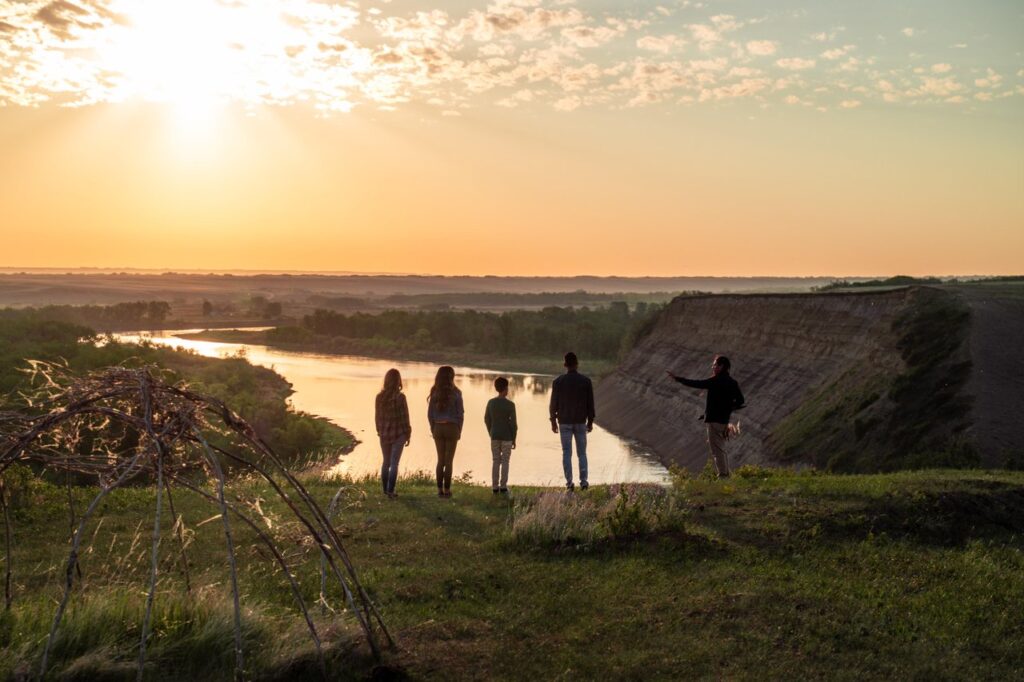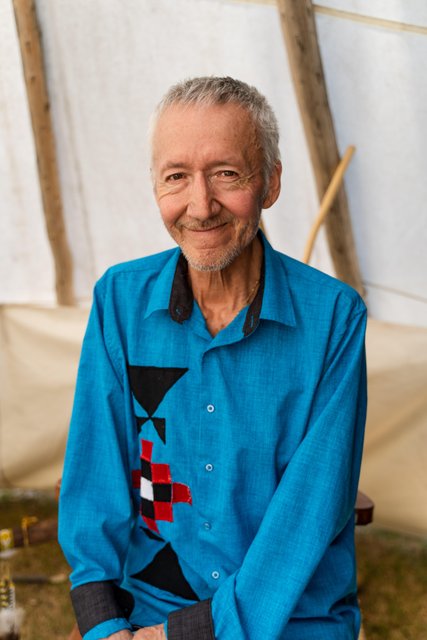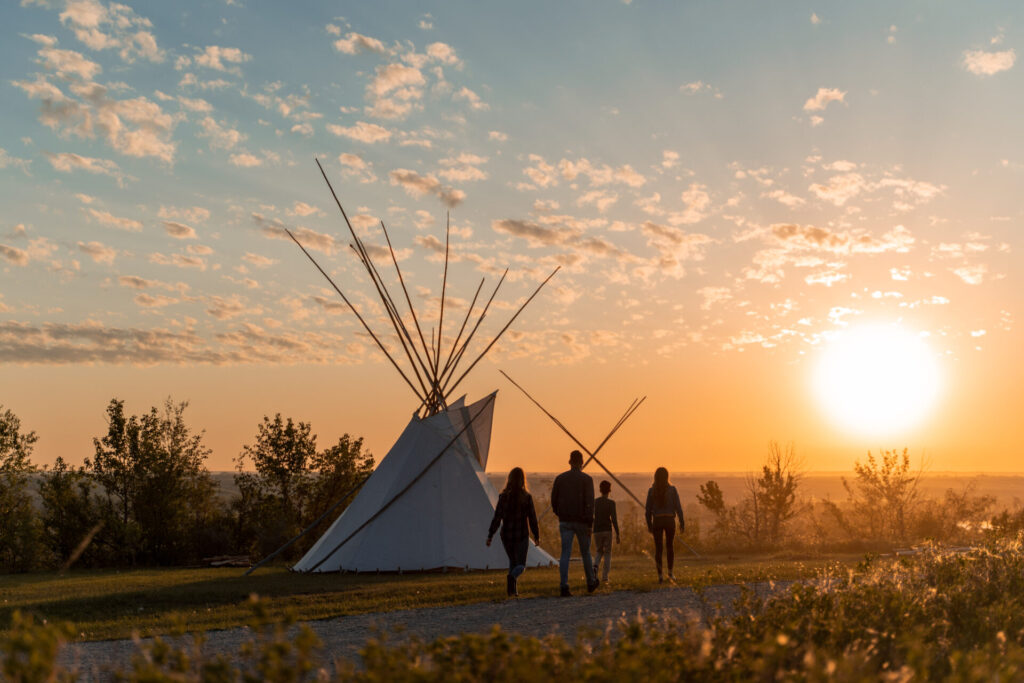
“The land still heals, still speaks”
At River Ranche Lodge, Dion Red Gun shares the spirit of the Bow Valley – where story, land, and healing are one.
The Bow River runs brown and slow in late summer, its banks heavy with willow and cottonwood. On a rise above the valley sits the River Ranche Lodge, where Dion Red Gun starts his mornings the same way: looking north toward the hill where his great-grandparents are buried. “Their spirit is flowing through me,” he says. “Every day I wake up, I remember why we stayed here.”

Red Gun, sixty-five this spring, is a carpenter by trade but a storyteller by inheritance. His lodge is part retreat, part classroom, part living museum. It is also a kind of personal testimony. Living proof that even after illness, flood, and the long shadow of residential schools, the land itself still heals, still speaks. “This place is here not because of me,” he insists, “but because of the surroundings and the spirit of the land.”
He was raised by his grandparents along the river, in houses that had no electricity or running water, where winter wood was hauled from the valley and the stove served as both hearth and heat. His grandmother and great-grandmother taught him the intimacy of living with the land: how to gather plants, trap animals, split hides, build campfires. “I didn’t realize I was being mentored to something bigger,” he says. “But it eventually overtook my life.”
When federal agents tried to pull families closer to the rail line further north, his grandmother resisted. She kept her family along the river valley, the place called Little Chicago. “It wasn’t good for us,” Red Gun recalls. The river was where they belonged.
In 2013, that same river flooded, forcing his family to higher ground. By then, Red Gun had already survived something more devastating. Years in a wheelchair after a crippling accident and degenerative illness. He remembers being told in long-term care that he would never walk again. “The only way I’d leave that place was in a pine box or if I walked out,” he says. So he did. Baby steps became long walks, until one day he simply left, family waiting in a car outside.
What followed was an act of defiance and faith. He went back to school at Mount Royal University, studying anthropology and archaeology, and he reached out to Elders for guidance. “Once I accepted what was going on with my body, I started to rely on my legs again,” he says. “I started to rely on the land.”
If River Ranche Lodge is the culmination of that journey, it is also a continuation of something his ancestors began generations ago. His grandfather, Harry Red Gun Sr., was tasked with teaching Blackfoot families to ranch and farm. His great-grandparents James and Mary Many Guns helped root the family so deeply in Siksika that, as Dion puts it, “we became lifers here.”
The lodge sits near an ancient buffalo jump. Red Gun often takes visitors across the plateau, pointing out stone circles and fire pits left by people thousands of years ago. He reads the land like scripture, the stones become a record of survival and ingenuity. “The stones themselves are a wealth of knowledge if you know how to look at them,” he says.

Tourism, for Red Gun, is not a business so much as a form of cultural diplomacy. He calls his programs “immersion activities.” Guests fly-fish the Bow or hunt upland birds; they eat buffalo, learn about plant medicine, sleep in tipis. But woven through every activity is the story of place.
“I’m hoping people leave with a better knowledge than when they arrived,” he says. “That they feel the spirit of this land and know why it is so special to us.”
That spirit, he believes, has saved him more than once. “If it wasn’t for the land, who knows where I would be,” he says.
Red Gun’s humor makes the teaching easier and insists that laughter is as healing as the plants he gathers. Yet beneath the humor is something urgent: a recognition that Blackfoot language, stories, and land-based knowledge remain fragile.
“The language was almost stripped from me,” he admits. “I had to learn it all over again. But my grandmother told me, ‘You’re raised with nature, you’re in tune with it. Don’t worry, they’ll walk with you.’”
He passes that lesson to his grandchildren, teaching them to tan hides and walk the plains. His 19-year-old grandson dances at powwows not for competition, but to share story. “The future is right for them,” Red Gun says. “I literally had to learn to walk again with them, step by step.”
The River Ranche Lodge is not large — six suites, of which four are open to guests — but it draws visitors from Germany, France, the U.K., and across North America. Corporations book workshops on reconciliation. Universities send writing retreats. International anglers arrive for the Bow’s trout.
The draw, though, is not the fishing or the facilities. It is Red Gun himself, and the sense that the river valley still remembers. “We all have a home we can go to,” he says. “This is mine. And I want to share it.”
On evenings when the river runs clear, he likes to stand on the rise and watch the light fade over the valley. Somewhere below, the stones mark where his ancestors camped six thousand years ago. Above him, his grandparents rest on the hill.
